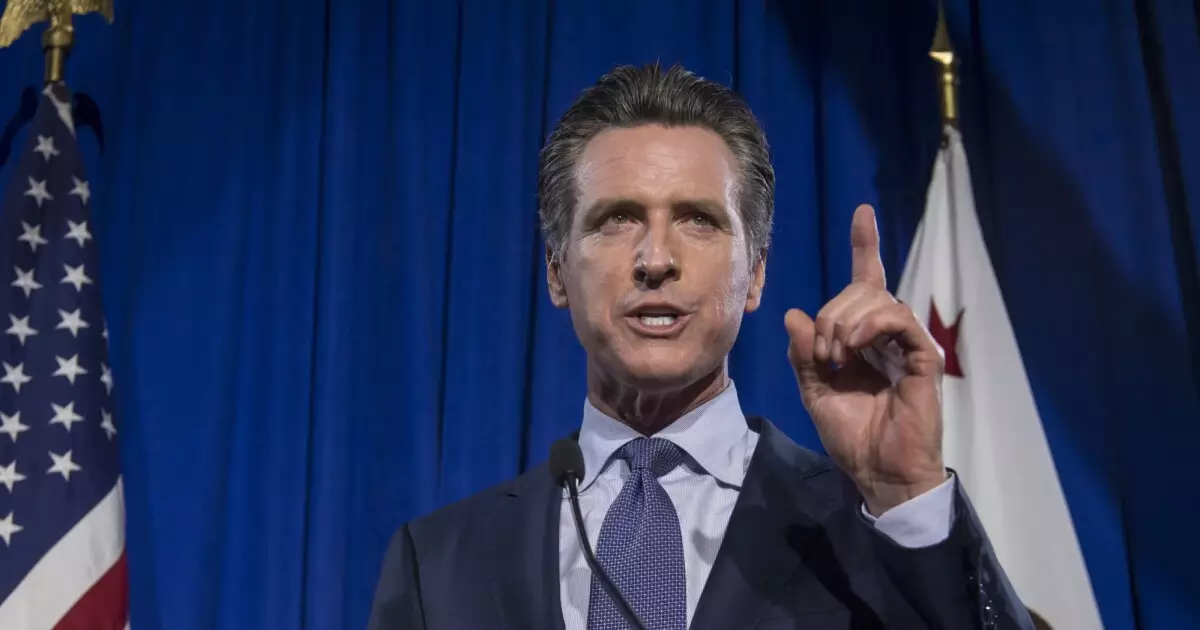The recent lawsuit filed by the California School Boards Association (CSBA) against the state underscores a critical issue concerning educational funding in California. Central to this legal dispute is Proposition 98, a constitutional amendment that mandates a minimum level of funding for public education. In essence, this law is intended to ensure a predictable and stable source of financing for schools, thus safeguarding the educational future of the state’s youth. However, the introduction of the 2024 Education Omnibus Budget Trailer Bill—approved earlier this year—has raised alarms among educators and stakeholders who believe it subverts the very intention of Proposition 98.
The CSBA’s claim is straightforward yet profound: the trailer bill, which was crafted as part of the state’s budgetary measures, deliberately undermines the provisions of Proposition 98. This could lead to funding deficits that jeopardize the quality and availability of educational resources. The lawsuit points to the fact that the state’s current fiscal strategies, primarily aimed at addressing budgetary deficits, should not come at the expense of the educational framework established by voter mandate.
Legal Grounds and Implications
This litigation is not merely a procedural critique; it is a significant legal counteraction that seeks to affirm the voters’ will. According to CSBA President Albert Gonzalez, California’s leadership cannot dismiss constitutional provisions simply because they are inconvenient or politically challenging. The lawsuit aims to hold both the state legislature and the governor accountable for upholding the commitments made to voters regarding educational funding. The CSBA’s position emphasizes that voters sanctioned Proposition 98 for a reason: to bring stability and predictability to school funding, which is now perceived to be at severe risk due to state budgetary manipulations.
The implications of this lawsuit extend beyond the immediate funding available to schools. If successful, it could reinstate the financial protections that Proposition 98 offers, keeping lawmakers from bypassing these provisions in the future. During financially challenging times, such protections serve as a safeguard against arbitrary budget cuts that could have devastating consequences for educational institutions.
In response to the CSBA’s allegations, the California Department of Finance has expressed confidence in their actions being within constitutional boundaries. Their defense, articulated in a detailed letter, argues that the adjustments made to the educational budget are lawful and appropriate. This marks a significant aspect of the conflict: while the CSBA frames the issue in terms of constitutional fidelity, the state administration maintains that their budgetary decisions are both justified and necessary for fiscal stability.
H.D. Palmer, spokesman for the Department of Finance, remarked that their measures are intended to responsibly manage the state’s finances and ensure continued funding without infringing upon constitutional mandates. The two-page response highlights the tension between fiscal responsibility and constitutional adherence, raising questions about the balance that must be struck in the process of governance.
The modifications embedded within the trailer bill have potential long-term ramifications for California’s educational system. The proposed changes reportedly enable the state to calculate educational funding thresholds in a way that could reflect a significant shortfall when future revenues are adjusted downward due to economic fluctuations. For districts that are already struggling with limited resources, this could result in a barren landscape where educational quality deteriorates.
The CSBA has articulated concerns that this legal action is not just about immediate funding levels but also encompasses broader worries regarding the precedent it may set. By enabling the government to manipulate the foundational loopholes of Proposition 98, future administrations might exploit these same maneuvers to skirt around obligations to fund education adequately. This could result in an ongoing cycle where financial pressures are used as an excuse to erode the very underpinnings of California’s educational guarantees.
As the lawsuit unfolds, it serves as a stark reminder of the ongoing tug-of-war between fiscal management and adherence to democratic mandates. The outcome of this legal battle may ultimately set a crucial precedent that determines not only the financial stability of California schools but also the principles that govern budgetary appropriations in the state. For the CSBA, this is not merely a legal confrontation; it is a pivotal moment in upholding a commitment to quality education—a commitment that should never be compromised, even in the realm of state finance.
The stakes are high for California’s students, educators, and communities. The court’s decision will carry weighty implications, echoing the importance of viewing educational funding as a non-negotiable priority that reflects the democratic will of the state’s electorate. As this case proceeds, the eyes of stakeholders across California remain focused on the unfolding developments, hopeful for a judgment that safeguards the educational rights of each student encountering their own path to knowledge and achievement.

